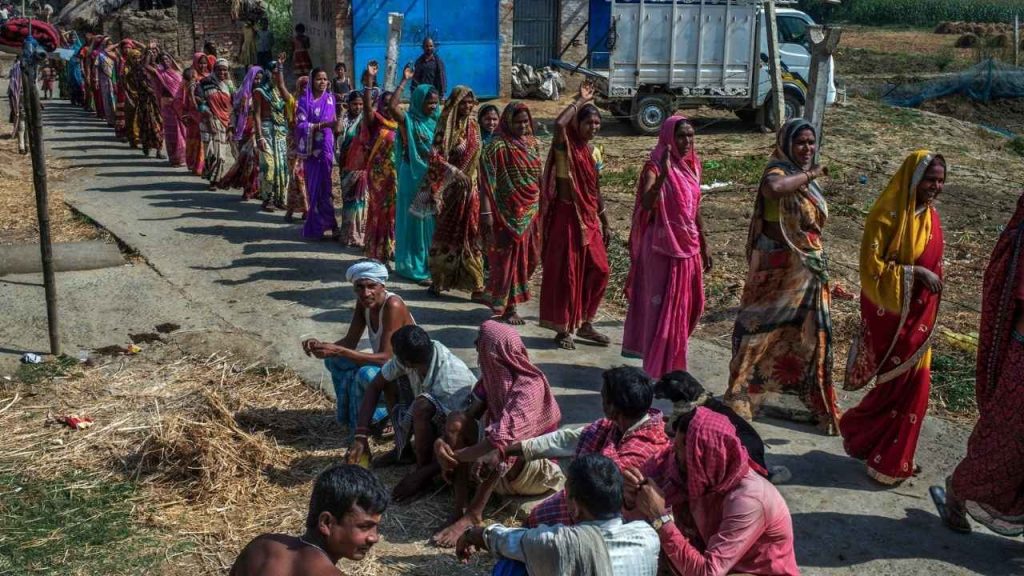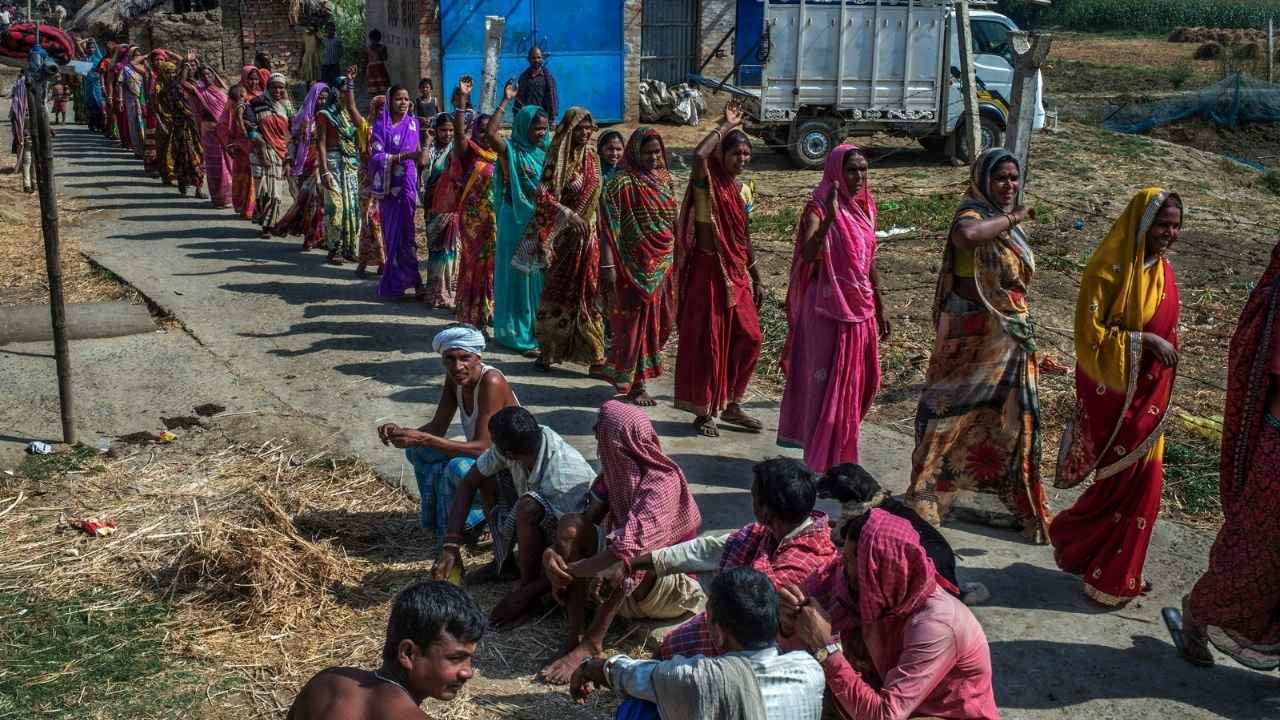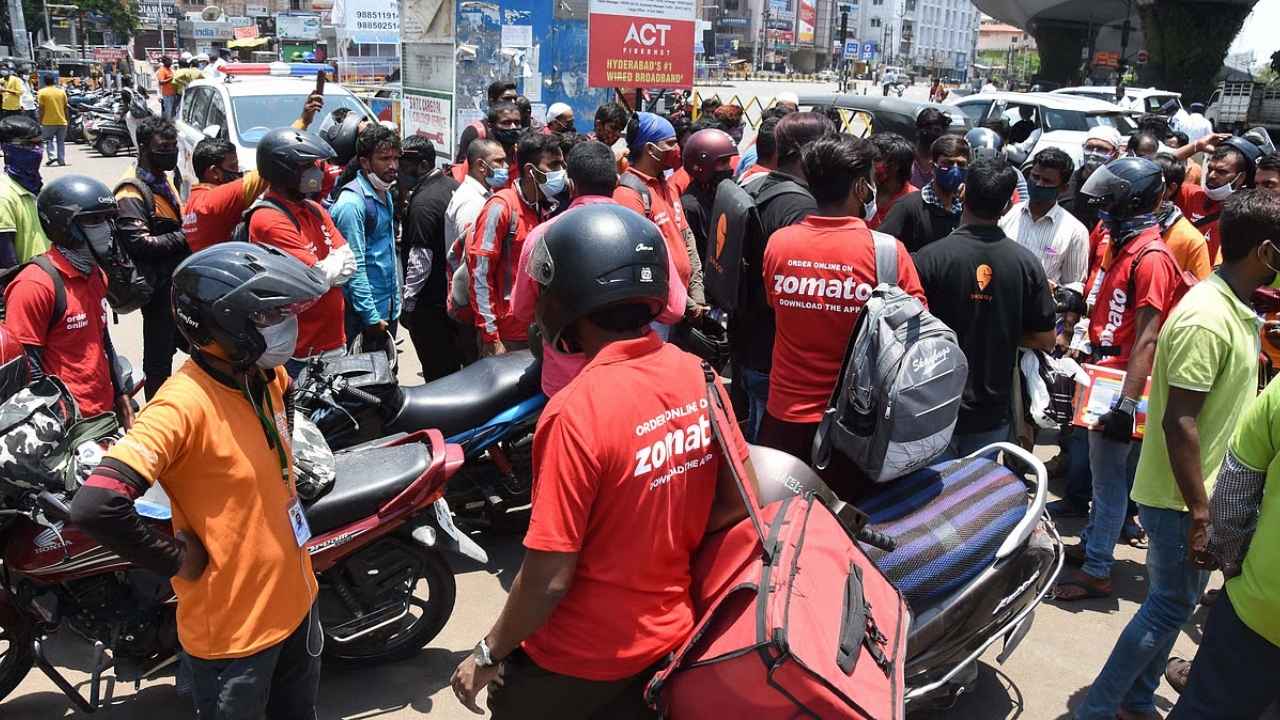In Bhadrak, Odisha, a group of bold, determined women made headlines after they occupied a liquor shop site overnight to protest the rising crime rates in their community. The peaceful but powerful protest is drawing attention not just locally, but nationwide—and it speaks volumes about what happens when people feel they’ve had enough.

This act of civil disobedience wasn’t just about alcohol. It was about protecting homes, families, and dignity in the face of neglect. These women, mostly homemakers and local vendors, are taking a stand where the system has, in their eyes, failed to do so.
Bhadrak Women Decry Spike in Crime
| Key Point | Details |
|---|---|
| Event | Overnight occupation of liquor shop site by women in Bhadrak |
| Location | Patuli Market, Dhamnagar Block, Bhadrak District, Odisha |
| Date | July 18, 2025 |
| Reason | Protest against rising crime, alcoholism, and alleged inaction by authorities |
| Key Issues | Illegal liquor trade, domestic abuse, petty crime, youth addiction |
| Community Action | Peaceful occupation, demand for liquor shop closure |
| Official Source | Odisha Police Official Site |
| Similar Cases in India | Kumbhraj (MP), Kandhamal (Odisha), Tamil Nadu Anti-Liquor Protests |
| Law Cited | Odisha Excise Act, 2008 – Sections on illegal vending and nuisance |
The women of Bhadrak have spoken—not with anger, but with clarity and courage. Their overnight occupation of a liquor shop site wasn’t just an act of defiance; it was a community’s cry for dignity, safety, and accountability.
This isn’t an isolated protest. It’s part of a broader movement across India, where local voices are challenging top-down decisions in the name of public welfare. These women have shown that when you stand up, even if it’s barefoot and tired, you can shake systems.
If there’s one takeaway here, it’s this: change starts small—but it starts with you.
The Protest That Woke Up a District
The Patuli Market liquor shop, situated under Dhamnagar Police jurisdiction, has long been a source of community frustration. Over time, it became a magnet for anti-social elements, with crime and addiction reportedly increasing in its vicinity.
Women in the area say they’ve seen it all—fights breaking out, drunken men loitering near schools, and young boys spiraling into alcoholism before they even finish high school. After multiple appeals to local officials went ignored, they took matters into their own hands.
“We’re not against earning or business,” said one protester, “but this is not business—it’s destruction. We’re mothers, we’re sisters. This is our home too.”
Why This Matters
- Over 30% of crimes in Bhadrak (as per the 2023 district police report) are alcohol-related.
- Domestic violence cases in Odisha spiked by 42% between 2020 and 2024.
- A 2022 WHO report found that India is the 3rd largest liquor market globally, yet regulation in rural areas remains patchy at best.
These aren’t just statistics. They’re lived realities.
Understanding the Bigger Picture: Why Liquor Shops Spark Protests in India
Across India, especially in tribal, rural, and coastal areas, liquor outlets are often seen as social hazards rather than revenue-generating businesses. The Odisha Excise Policy attempts to regulate alcohol sales, but implementation lags behind, especially in districts like Bhadrak.
Common Concerns Raised by Protesters Nationwide:
- Youth Exposure: Kids are being introduced to alcohol earlier due to poor regulation.
- Violence at Home: Alcohol abuse is a major factor in domestic violence and abuse.
- Public Nuisance: Drunken behavior in public places poses a threat to women’s safety.
- Economic Drain: Low-income families suffer when the breadwinner spends daily wages on liquor.
In Tamil Nadu, Madhya Pradesh, and even Maharashtra, women-led protests have achieved the relocation or complete shutdown of alcohol shops.
Practical Advice for Communities Facing Similar Issues
If you or your community is going through something similar, here’s a step-by-step guide to legally and peacefully oppose harmful liquor outlets:
Step 1: Document the Problem
- Take photos/videos of public disturbances.
- Collect testimonies from locals—especially shopkeepers, teachers, and senior citizens.
- Maintain records of complaints made to the authorities.
Step 2: Know the Law
- Refer to the Odisha Excise Act, 2008, especially sections that regulate proximity to schools, temples, and residential areas.
- Use RTI (Right to Information) to demand accountability from local excise officers.
- Consult with local lawyers or legal aid organizations for support.
Step 3: Mobilize Support
- Conduct community meetings—get youth, elders, and women involved.
- Create a petition with signatures.
- Leverage local media and social media to amplify your voice.
Step 4: Engage Peacefully and Persistently
- Peaceful protest is a constitutional right under Article 19(1)(b) of the Indian Constitution.
- Avoid vandalism or threats—stay non-violent and focused on the issue.
Step 5: Demand Administrative Action
- Submit complaints in writing to:
- District Collector
- Excise Superintendent
- Women’s Commission if abuse or harassment is involved
What the Authorities Are Saying (or Not Saying)
So far, local officials in Bhadrak have acknowledged the incident but have not made any formal commitments. That silence speaks volumes.
As per Odisha Excise Department, every liquor outlet must comply with zoning laws—yet loopholes are often used to keep shops open.
When pressed for comments, police sources said they are “investigating the matter,” but no action has been taken against the liquor vendor or the unauthorized sales reportedly happening in that area.
The Role of Grassroots Women in Civic Action
Let’s be clear: this isn’t just a story about a liquor shop. It’s about community leadership, women’s empowerment, and local governance.
The Bhadrak protest highlights:
- The growing political voice of rural women
- The need for gender-sensitive law enforcement
- The importance of public pressure in democratic accountability
According to a UN Women report, community-based women’s groups are 4x more likely to create sustainable social change than top-down policies alone.
11 Days Before Tragic Self-Immolation, Odisha Student Warned of Suicide
Journalist Murdered in Odisha’s Malkangiri: Police Investigation Underway
Odisha Holds 44 Bengali Migrant Workers as Citizenship Verification Process Continues
FAQs
1. Is it legal to protest against a liquor shop in India?
Yes. Peaceful protest is protected under the Indian Constitution (Article 19). However, blocking public roads or damaging property may lead to legal action.
2. Can a liquor shop be shut down permanently?
Yes, if it violates local zoning rules or if there’s overwhelming public opposition. Many state excise laws allow for community-led shutdowns.
3. How do I find out if a shop near me is legal?
Visit your state excise department’s website or file an RTI request to get licensing information.
4. Is alcohol consumption rising in rural India?
Yes. According to the National Family Health Survey-5 (NFHS-5), alcohol use among rural men rose by 6.3% between 2016 and 2022.
5. What alternatives can villages offer to those employed by these shops?
Skill-based employment through self-help groups (SHGs), agricultural cooperatives, or MGNREGA jobs can support income transition.





